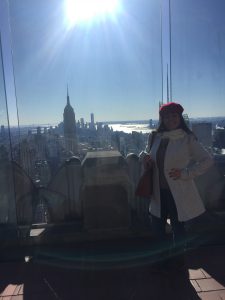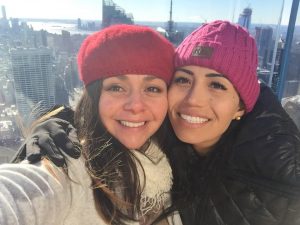
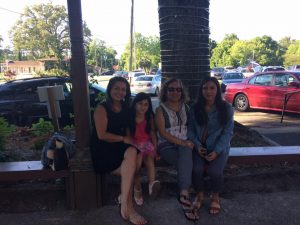
Nadia and I met at a coffee shop down the road from our university for the interview. Rather than setting up a video camera or recording her voice, she felt more comfortable telling her story in casual conversation. I have taken three classes with Nadia now, but I did not know anything about her past except that she is from Peru. Her dedication in class never fails to impress me, but following the interview, I can see that her dedication stretches far beyond her academics.
[We conducted the interview in Spanish. All English translations are by Sarah Leaird. The original Spanish version was reviewed by Nadia after the interview. All photos courtesy of Nadia Cano]
———————————————————————————————————————————————–
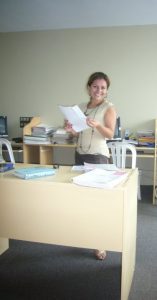
Sarah: What is your name and where are you from?
Nadia: My name is Nadia Cano and I am from Peru.
Sarah: Can you tell me about your life in Peru?
Nadia: My life is Peru was good. I had an active social life, many friends, and family close-by. I lived with my brother and grandmother. I studied Law in Peru and I worked as an adviser to a lawyer. During this time, my mother and sister lived in the United States.
Sarah: And why did you come to the United States?
Nadia: Because I wanted to be close to my mother. I hadn’t seen her in 10 years. The other reason was because I wanted to know what life was like in the United States and see if there would be more opportunities for me.
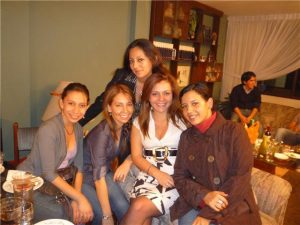
Sarah: What were the most difficult parts about the transition to the United States?
Nadia: The most difficult parts were adapting myself to the new culture, the customs, and the language. I believe the most difficult out of these was the language. Communicating at first was very difficult. There was a lot of frustration and it was difficult to form a social group. I studied English in Peru a long time ago, but had forgotten everything. When I came to the United States, I had to start new with my education. I could not validate my studies and additionally I wanted to improve my English. I studied English for one year in the ESL [English as a second language] program at the community college. Afterwards, I earned my GED and enrolled in a community college to complete my general courses.
Sarah: And now what do you do?
Nadia: Now I am continuing my studies in Political Science at the University of North Carolina [Asheville] and I have one year left. I have been working with topics [relating to] immigration and volunteering for institutions like Pisgah Legal Services. [I am also a part of] “Nuestro Centro” [“Our Center”], which is a Hispanic community where I associate with other Latinos. Currently, I am working with DACA students. Outside of school, I work as a waitress.
